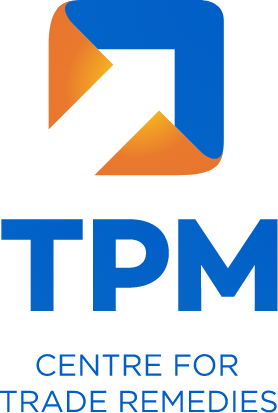The Ministry of Commerce and Industry has announced the new Foreign Trade Policy 2023, which will be effective from 1st April 2023. As per the Ministry, although this policy is intended to expire in 2028, it will be dynamic, updated as and when required, with no end date. Further, the Central Government has set a sector-specific target of achieving $1 trillion merchandise exports and 1$ trillion service exports by the end of 2030. Following are the key highlights of the new policy:
A. Ease of Doing Business, Reduction in Transaction Cost and E-Initiatives
1. The policy focuses on ease of doing business through paperless and automated approval system. It has reduced the processing time of advance authorization issuance, EPCG issuance, revalidation of authorisations, extension of export obligation period from 3-31 days to 1 day.
2. All applications for redemption of authorisation shall become paperless. This would make the entire lifecycle of the authorization paperless.
3. The policy has reduced the application fee for MSMEs under advance authorisation and EPCG schemes.
4. The e-Certificate of Origin will be revamped with self-certification of CoOs and automatic approval.
B. Export Promotion Initiatives
5. The policy has rationalised the export performance threshold to enable more exporters to achieve higher status and reduce transaction cost for exports. For instance, the qualifying criterion for a five-star exporter has been reduced from $2 billion to $800 million.
6. Merchanting trade involving shipment of goods from one foreign country to another foreign country involving an Indian intermediary is allowed, without touching the Indian ports, subject to regulations set by the RBI, except for goods/items in the CITES and SCOMET list.
7. The policy focuses on internationalisation of Rupee by encouraging trade settlement in INR.
8. Four new Towns of Export Excellence (TEE) have been declared for apparel, handicraft, handmade carpets and handloom and handicrafts. This will be in addition to 39 town that are already approved. TEEs are industrial clusters that are recognized based on their export performance. Such recognition helps such industrial clusters in expanding to new markets, compete at a global level, receive financial assistance under Market Access Initiative Scheme, and eligibility for EPCG authorisation, among other benefits.
C. Districts as Export Hubs Initiative
9. The policy allows for a collaboration between exporters and States and Districts and a wider participation by States and Districts in promoting exports.
10. The regional Authorities of DGFT will also work with States and UTs to prepare District Export Action Plans, to help identify products / services in all districts. Further, the policy allows for creation of institutional mechanisms at State and District level to strategize exports.
11. It will also address infrastructure and logistic bottlenecks and help districts build export oriented eco-systems.
D. E-Commerce Exports
12. All the benefits of the policy will be extended to e-commerce with necessary enablement of IT systems in various government departments.
13. Consultation with various ministries will be held to formulate guidelines to facilitate further exports under e-Commerce.
14. Dak Ghar Niryat Kendras will be to work in a hub-and-spoke model with Foreign Post Offices to facilitate cross border e-Commerce.
15. Designated hubs with warehousing facilities will be notified to help e-Commerce.
E. Steps to Boost Manufacturing
16. Prime Minister Mega Integrated Textile Region and Apparel Parks shall be eligible to claim benefits under Common Service Provider Scheme and EPCG Scheme.
17. In order to promote dairy sector, it has been exempted from maintaining Average Export Obligation.
18. Battery Electric Vehicles for all types will be eligible for a reduced Export Obligation requirement under the ECPG Scheme.
19. Special Advance Authorisation Scheme has been extended to export of Apparel and Clothing sector.
20. In addition to Authorised Economic Operators, Self-Ratification Scheme for fixation of Input-Output Norms has been extended to 2 star and above status holders.
F. Amnesty Scheme
21. The policy has introduced an Amnesty Scheme for one-time settlement of default in export obligation in case of EPCG and Advance Authorizations. All pending cases of default in Export Obligation (EO) of authorizations specified can be regularized by the authorization holder on payment of all customs duties exempted in proportion to unfulfilled Export Obligation and maximum interest is capped at 100% of such duties exempted. However, no interest is payable on the portion of Additional Customs Duty and Special Additional Customs Duty. The scheme will only be available till 30th September 2023.
G.Emphasis on Streamlining SCOMET Licensing Procedure
22. The policy has also streamlined the Special Chemicals, Organisms, Materials, Equipment and Technologies (SCOMET) licencing procedure by measures such as consolidation of policy for export of dual use items (SCOMET items) at one place and general authorizations for export of certain SCOMET items.

